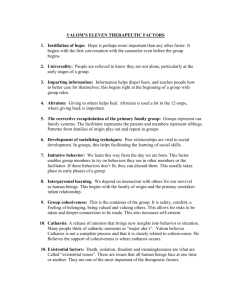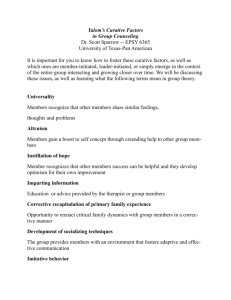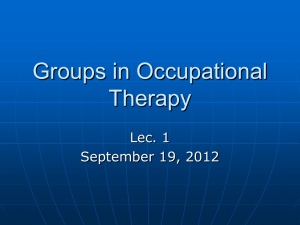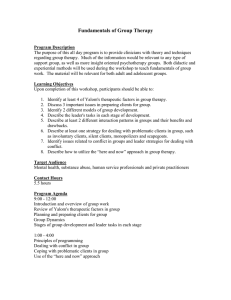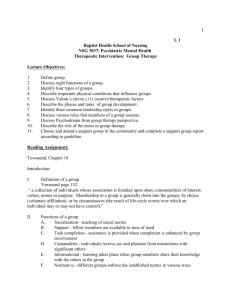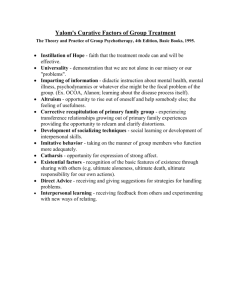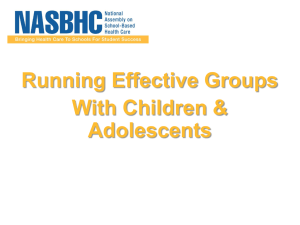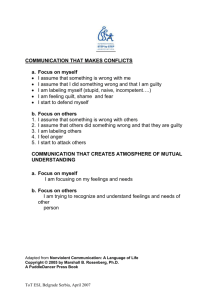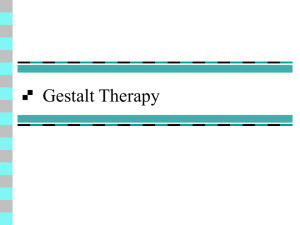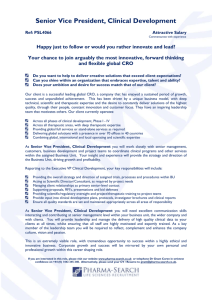Therapeutic factors
advertisement
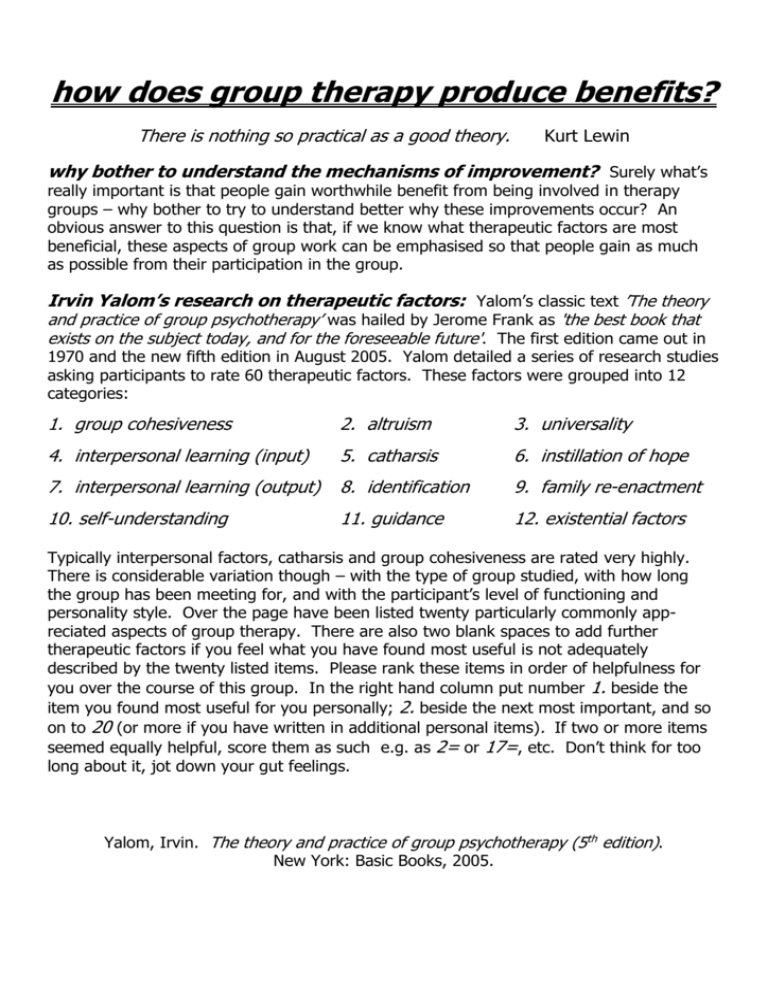
how does group therapy produce benefits? There is nothing so practical as a good theory. Kurt Lewin why bother to understand the mechanisms of improvement? Surely what’s really important is that people gain worthwhile benefit from being involved in therapy groups – why bother to try to understand better why these improvements occur? An obvious answer to this question is that, if we know what therapeutic factors are most beneficial, these aspects of group work can be emphasised so that people gain as much as possible from their participation in the group. Irvin Yalom’s research on therapeutic factors: Yalom’s classic text ’The theory and practice of group psychotherapy’ was hailed by Jerome Frank as 'the best book that exists on the subject today, and for the foreseeable future'. The first edition came out in 1970 and the new fifth edition in August 2005. Yalom detailed a series of research studies asking participants to rate 60 therapeutic factors. These factors were grouped into 12 categories: 1. group cohesiveness 2. altruism 3. universality 4. interpersonal learning (input) 5. catharsis 6. instillation of hope 7. interpersonal learning (output) 8. identification 9. family re-enactment 10. self-understanding 11. guidance 12. existential factors Typically interpersonal factors, catharsis and group cohesiveness are rated very highly. There is considerable variation though – with the type of group studied, with how long the group has been meeting for, and with the participant’s level of functioning and personality style. Over the page have been listed twenty particularly commonly appreciated aspects of group therapy. There are also two blank spaces to add further therapeutic factors if you feel what you have found most useful is not adequately described by the twenty listed items. Please rank these items in order of helpfulness for you over the course of this group. In the right hand column put number 1. beside the item you found most useful for you personally; 2. beside the next most important, and so on to 20 (or more if you have written in additional personal items). If two or more items seemed equally helpful, score them as such e.g. as 2= or 17=, etc. Don’t think for too long about it, jot down your gut feelings. Yalom, Irvin. The theory and practice of group psychotherapy (5th edition). New York: Basic Books, 2005. personal rating of therapeutic factors name: __________________________________ date: ________ a. feeling more trustful of groups and other people b. belonging to and being accepted by a group c. seeing that others could reveal embarrassing things and take other risks and benefit from it helped me to do the same d. learning how to express my feelings e. learning that I react to some people or situations unrealistically (with feelings that somehow belong to earlier periods of my life) f. other members honestly telling me what they think of me g. expressing negative and/or positive feelings towards another group member h. learning that I sometimes confuse people by not saying what I really think i. giving part of myself to others j. learning about the way I related to the other group members k. group members pointing out some of my habits or mannerisms that annoy others l. expressing negative and/or positive feelings towards the group leader m. revealing embarrassing things about myself & still being accepted by the group n. learning that I must take ultimate responsibility for the way I live my life no matter how much guidance and support I get from others o. continued close contact with other people p. learning that I have likes or dislikes for a person for reasons which may have little to do with the person & more to do with my hang-ups or past experiences q. learning why I think and feel the way I do (that is learning some of the causes and sources of my problems) r. discovering and accepting previously unknown or unacceptable parts of myself s. the group’s teaching me about the type of impression I make on others t. being able to say what was bothering me instead of holding it in u. v.
